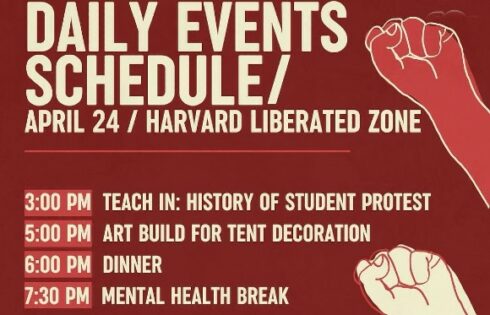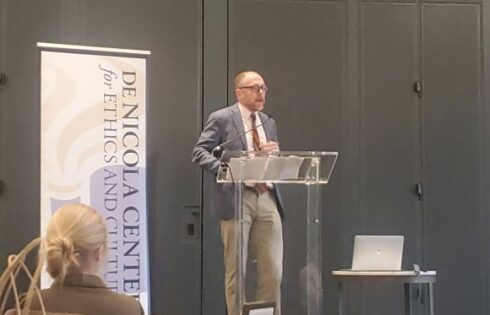
‘It is incredibly disappointing that anyone would want to stop families from receiving assistance,’ said school choice group
With school choice programs becoming increasingly common across the country, so are fights over those programs. Public school officials in Kentucky are suing to stop the implementation of the state’s new school choice bill.
The Council for Better Education, an association of 168 Kentucky school districts, filed a lawsuit in the Franklin Circuit Court against the Kentucky Department of Revenue and Finance Cabinet on June 7. The lawsuit alleges that the sections of HB 563 which create an Education Opportunity Account Program are unconstitutional under Kentucky law.
The program, which is available to families with an income of up to 175% of the Department of Agriculture’s income cap for reduced-price lunches, creates education savings accounts where third-party organizations can deposit funds. These accounts can be used for a variety of educational expenses, including tutoring, dual-enrollment courses, and computers.
In counties with a population of more than 90,000, the money can go towards private school tuition. The third-party organizations which donate the money are given a state tax credit for their donations.
The Council for Better Education claims that this provision violates section 184 of the Kentucky Constitution, which prohibits the use of tax money to directly fund private schools.
This legal arm of Kentucky school districts also says the law will take away money from public schools and is not consistent with Rose v. Council for Better Education. That is an important 1989 case where the Kentucky Supreme Court found that the state legislature had failed to create an efficient, well-funded public education system.
The Council for Better Education did not respond to The College Fix’s requests for comment on its latest lawsuit.
And in the other corner
While the Council for Better Education hopes to overturn the legislation, it will face significant opposition from the Institute for Justice and school choice groups.
“It is incredibly disappointing that anyone would want to stop families from receiving assistance under this program. Nevertheless, we are confident in the program’s fit for Kentucky and the team that will be defending it in the courts,” the group EdChoice KY said in a statement.
Scholarship tax-credit programs like Kentucky’s have a perfect record for courts finding them constitutional, reported policy scholars Jason Bedrick and Lindsey Burke in Public Affairs magazine.
Also, this time the school choice side has an extra arrow in its quiver. The 2020 Supreme Court ruling Espinoza v. Montana struck down a Montana law which excluded religious schools from a tax credit program similar to Kentucky’s.
While the Kentucky Department of Revenue is expected to defend HB 563, the Institute for Justice, which litigated the Espinoza case, has intervened in the Kentucky case.
Institute for Justice attorney Ben Field said in a phone interview with The College Fix that many of the Council for Better Education’s arguments, including that the program serves no public purpose and delegates legislative authority to private organizations, are faulty or just plain wrong.
In fact, Field believes the Rose decision is supportive of the law because HB 563 does not take away any funding from public schools. It simply offers tax credits which the state gives to numerous other organizations including for-profit businesses. Field pointed out that the program can be utilized by students in public schools too.
Field argued the legislation complies with the Kentucky Constitution because section 184 says the legislature cannot directly appropriate tax money for private schools. There is no prohibition on tax credits.
Real lives in the balance
The Institute for Justice and school choice groups believe there would be a significant human cost to striking down the school choice law.
One of the parents who the Institute for Justice is intervening on behalf of is Akia McNeary. As the public interest law firm presents their client’s situation, McNeary has three children and hopes to utilize the program differently for each child.
McNeary’s oldest child is enrolled in a traditional public school, and she hopes to use the scholarship money to pay for dual-enrollment classes. For the two younger children, McNeary will utilize the funds to help pay for a private Christian school that she believes is the best educational option for them.
A ruling against this legislation could potentially affect the McNearys and thousands of Kentucky families.
What remains to be seen is how this legislation and subsequent litigation will have an impact on the school choice movement which has become prominent across America. As the country moves on from the COVID-19 pandemic, many parents are finding that the traditional school system no longer works for their children.
“The pandemic illustrated that institution-centered education models, such as school districts, often fail to meet the needs of families,” Heritage Foundation research associate Jude Schwalbach told The College Fix in an email. “ Student-centered models, on the other hand, provide the primary stakeholders—parents and students—with flexibility which allow students to receive education options tailored their needs instead of institutions.”
For now, Field says the next step in the case is a hearing on July 7 in which the Council for Better Education will try to obtain a temporary injunction against HB 563.
Whichever side loses in the hearing is expected to appeal the ruling. Until that process is exhausted, the future of school choice in Kentucky remains in doubt.
MORE: Democratic Wisconsin governor vetoes school choice expansion
IMAGE: Vova Shevchuk / Shutterstock.com
Like The College Fix on Facebook / Follow us on Twitter





Please join the conversation about our stories on Facebook, Twitter, Instagram, Reddit, MeWe, Rumble, Gab, Minds and Gettr.